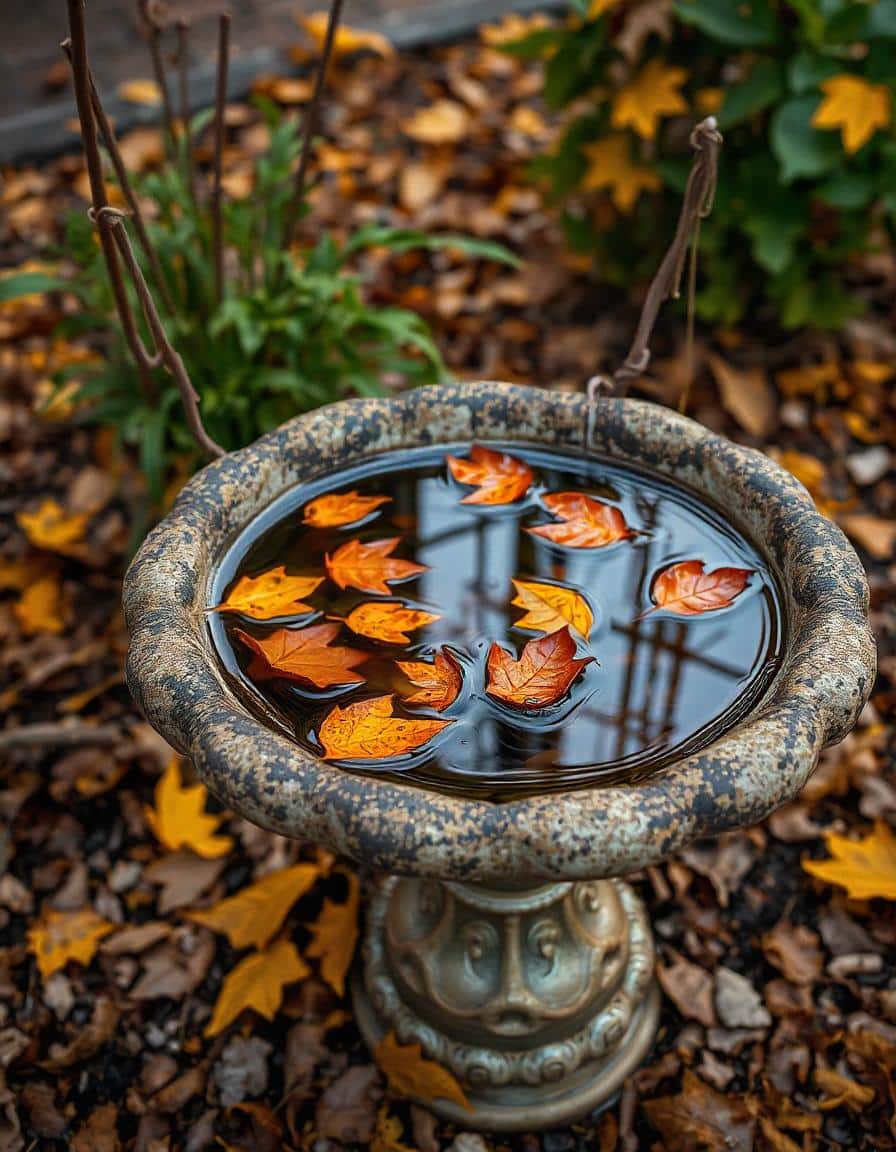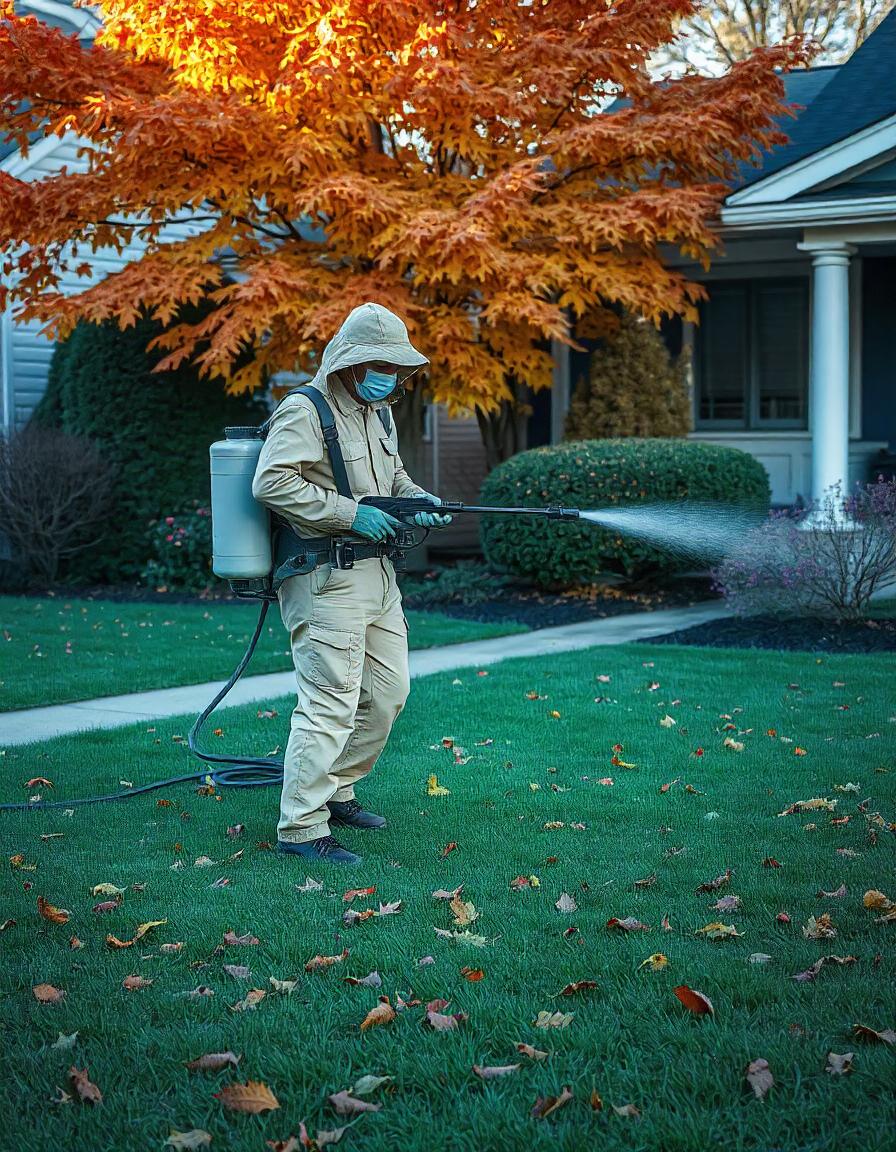
Simple Changes to Your Yard That Can Stop Mosquitoes
Few things can ruin nice evening like the buzzing of a hungry attacking mosquito. The swarming draws you indoors, and the bites can keep you scratching for many days. When bitten by females, Zika virus, malaria, and West Nile virus can be transmitted from them. The good news is that you have chance to fight back at them. You break their cycle when you tie prevention, protection, and regular maintenance together. Find some of the tips listed below, which will keep them at bay and will keep that no-bite environment right through the season.
Eliminate Breeding Sites
Mosquitoes spend their first life stages in water. They lay eggs on or near standing still water. In a matter of days, those eggs become hungry larvae. That’s why removing stagnant water is your first step. After a rain check your yard for puddles. Remove items that collect water around your home such as flowerpots, buckets and old tires. If you have a birdbath, dump and refill it at least once a week. Same thing with pet water bowls: fresh water prevents larvae from becoming adult mosquitoes.
Drainage is important, too. If you have low spots in your yard that fill with water, fill them in with soil. That will prevent water from collecting. If you have a pool or hot tub, keep it treated and covered. A maintained pool won’t become a mosquito hatchery. Keep the filter running and shock your pool as needed. Also, store kiddie pools upside down when they’re not in use. Every little bit helps.
Use Protective Screens and Seals
You want to have open windows and doors without letting the mosquitoes inside. Well, screens are going to be your best friend. Check for tears or loose edges and patch or replace immediately. A small tear in one is all that is needed to allow a mosquito inside. Place door sweeps on exterior doors. This closes the gap at the floor level-a place where mosquitoes love to sneak inside when a door doesn’t seal.
Sealing cracks around windows and doors helps, too. Caulk or foam sealant covers small openings. Fill gaps around utility lines and pipes. These steps limit mosquito access to your home. A well-sealed house makes it harder for insects to slip in. You’ll enjoy better peace of mind, plus less buzzing in the night.
Natural Mosquito Repellents
Natural repellents are also going to be a great way to keep mosquitoes away from your skin in the gentlest manner. Many essential oils, for example, citronella, lemon eucalyptus, and lavender, mask their sense of smell. You can look for candles or sprays that contain such oils, or in one quick and simple DIY, mix a carrier oil-like coconut oil-with several drops of your favorite essential oils. Go ahead and apply on your exposed skin, but do test the allergies first.
Wear loose and light-coloured ones is another effective advice. Long sleeves and pants could reduce bites because mosquitoes usually attack in dark colours and tight textures. When possible, avoid going out at the time of dawn and dusk hours as it is their peak activity times. Adding more protective layers can also be done if one happens to be outdoors during this time. The natural techniques reviewed above will not eradicate the mosquitoes but will reduce the bites when integrated with other solutions.
Chemical Mosquito Repellents
Sometimes, the natural means are just not enough. In areas with high mosquito infestation, you may have to resort to stronger protection. DEET-based repellents are one of the common choices. They work for several hours. However, just follow the label instructions. Keep these products away from young children’s hands and eyes. If you have another alternative to DEET, you may want picaridin, another strong repellent option. It has less odour and often feels less greasy.
You can also treat your clothing or gear with permethrin. This synthetic chemical is a contact killer of mosquito. Many campers go for permethrin-treated tents and sleeping bags. If you choose to use it, apply the product in a well-ventilated area. Let the treated items dry out thoroughly before use. While permethrin provides effective protection, always exercise caution while handling it. Store permethrin-treated items out of the reach of pets or kids.
Mosquito-Repelling Plants
Certain plants emit odors that repel mosquitoes. The most popular version is called citronella grass, but other examples include lemongrass, basil, mint and marigolds, all which produce strong fragrances. Plant them near patios, decks or doors. They won’t solve your mosquito problem in and of themselves, but every little boost helps. You can also clip fresh leaves from these plants to crush in your hands. Smear the oil on the skin for fast and organic repellent effects, though sensitive skins or allergic contact dermatitis may avoid its application.
Place potted plants around seating. These enhance the beauty, and many can somewhat reduce mosquito attraction. Remember you will have other ways of control too. Repellent plants are handy, but best in a supplementary role, part of the bigger approach. Their scent can send some mosquitoes running, yet you still must eliminate water collections and use barriers.
Electronic Mosquito Traps and Zappers
Electronic traps can reduce mosquito populations, though results are variable. UV zappers kill mosquitoes by attracting the mosquitoes to the light and then killing them when they come into contact. Place these units a short distance away from your patio. You don’t want to bring more bugs right where you relax. They may also attract moths and other insects. Keep in areas away from your main seating spots.
CO2 traps work a lot like human breath: they pump out carbon dioxide into the air to lure mosquitoes inside some sort of capture chamber. While these can cut mosquito numbers over time, most generally need regular upkeep-be it replacing CO2 canisters or checking a capture area. Fans can also be quite effective. A gentle breeze disrupts mosquitoes; being poor fliers, it’s hard for them to land. It works very well to aim a fan toward your seating area.
Professional Pest Control Services
Sometimes, a pro is necessary. If you have a huge property or have a large infestation problem, professionals would be the best to approach. They find those hidden areas that pests breed in and address problems directly. They also make use of other, longer-lasting products. Most pest control companies offer routine treatments throughout mosquito season for steady defence all summer.
It is helpful to ask about organic treatments or integrated pest management. These approaches will provide protection against mosquitoes but are safe for bees and other helpful insects. A pest control specialist can offer more structural help. To improve drainage or install drainage screening, they may pinpoint certain places in your garden where you should do those changes. For a lot of people, having a good pest control service offers some peace of mind. You will also spend less time since the professionals will take care of the specifics.
Conclusion
Best of all, it is advisable to confront them simultaneously from all directions. Begin with the removal of stagnant water which serves as a breeding ground for mosquitoes. After that, protect your home by fitting and servicing screens and door sweeps. Give natural repellents a try, such as essential oils or mosquito-repelling plants. If you need some stronger coverage, go for the chemical repellents with DEET or picaridin. If one will be outdoors, Permethrin-Treated clothing also is a good option.
Other forms of assistance include electronic devices such as UV zappers and CO2 traps if correctly placed. Of course, if it all gets a bit too much, the balance can be tipped again with professional pest control. They treat broad areas and find hot-spot you miss. Do basic yard care too: grass short, clean gutters, items stored. Each one reinforces general defence.





